
Empowering Your People Isn’t Enough | DConsulted
Learn why empowering employees alone doesn’t guarantee success. Discover how strategic alignment and leadership support drive real results.

Engineering is a constantly evolving discipline. Riding its crest requires using state-of-the-art technologies that increase and improve knowledge, problem-solving, productivity, and innovation. One of the technologies currently spreading through the engineering industry and well worth incorporating into your engineering practice is ChatGPT, a free-to-use Artificial Intelligence (AI) system that brings all of these benefits and will immediately become a key contributor to your engineering team.
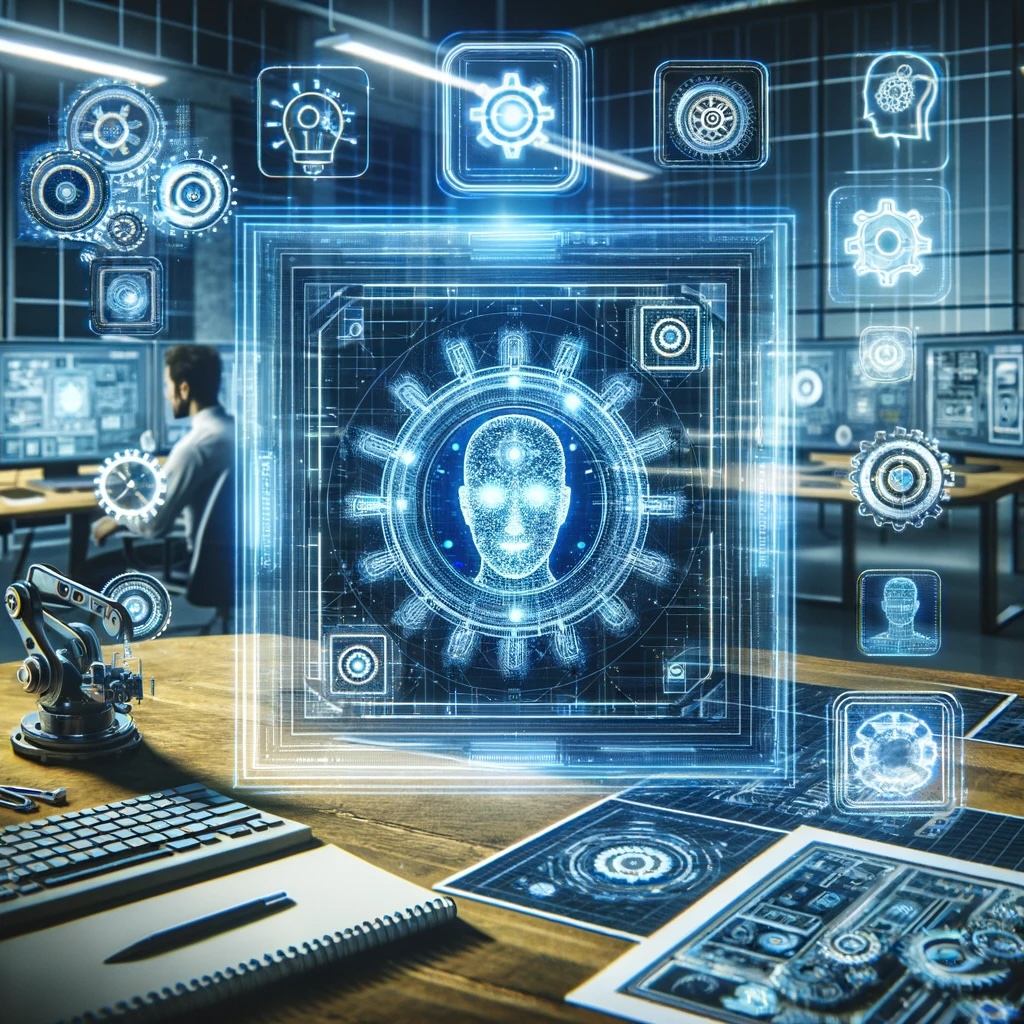
The integration of ChatGPT and its unique applications is a major revolution in engineering, having as much impact as calculators and Excel spreadsheets had on automating and enhancing creative exploration, mathematical computations, data analysis, and problem-solving. ChatGPT has been shown to change for the better an engineering team’s work by speeding up learning, assisting in decision-making, and improving project processes.
Engineering firms are also leveraging this AI system to build and maintain comprehensive, proprietary knowledge repositories to enhance their competitive edge. Incorporating ChatGPT into your business can enable customization as well to meet your specific requirements and establishing it as the central component of your confidential engineering operations eliminates the potential for data exposure.
When you evaluate the whole of it, this single, relatively new resource can exceed the contribution of expert consultants, enhance learning and development, and become a senior mentor and educator to junior engineers, accelerating their development and contribution to your engineering team. Additionally, ChatGPT offers a compelling solution for safety analysis applications, ensuring compliance with ISO 26262 and ASPICE standards. Let’s explore each of these benefits.
A huge business advantage that immediately impacts the bottom line is using ChatGPT as you would an assistant engineer to review engineering documents, designs, and software code eliminating the need for expert consultants or senior engineers to produce work.
Your AI engineer can be trained to detect specific proprietary design issues or pinpoint better designs from a proprietary design knowledge base without consuming time trudging through hundreds of design documents or endless checklists.
ChatGPT offers a wide range of applications and can be an indispensable partner in the field of safety analysis, performing extensive assessments, safety analysis writing, detailed documentation, scenario simulation, and failure detection with unequaled performance.
From the very first day, your ultimate assistant engineer will be able to process and generate detailed, well-structured documents and designs swiftly. The AI system’s rapid processing speed will enable you to conduct multiple scenario simulations, uncovering complex issues across a variety of circumstances and perspectives. Moreover, ChatGPT will conduct iterative analyses, simplifying the task of identifying defects and ensuring confidence in your assistant’s ability to address a wide range of engineering challenges.
One of the primary advantages of ChatGPT is its capability to improve both learning processes and decision-making with greater effectiveness and efficiency when compared to the conventional reliance on outside consultants. Moreover, ensuring confidence and reliability is imperative when using AI for various engineering tasks involving model training and reinforcement. The adoption of rapid-learning techniques empowers engineering teams to adjust their responses quickly and confidently to new and unfamiliar inputs, enabling a significant enhancement in the speed and precision of their decision-making.
ChatGPT achieves this by streamlining the learning process, reducing the time typically spent on tackling learning curves and engaging in prolonged discussions. This simplified approach not only eliminates unnecessary time wastage while boosting overall efficiency. Consequently, collaborative endeavors aimed at tackling innovative and intricate challenges can now be approached with a heightened level of clarity, thoroughness, and objectivity, leading to more productive and impactful outcomes.
Unlike any other chatbot, ChatGPT decreases the reliance on external experts, enabling projects to flow faster without waiting for one or more consultants’ opinions. However, it’s crucial to recognize that an AI system serves as a complement, not an autonomous, final decision-maker, especially in critical safety analyses.
By offering timely guidance, ChatGPT empowers team autonomy, facilitating the smooth and confident undertaking of projects. The reduced reliance on external perspectives significantly increases the speed and efficiency of engineering teams. It enables them to focus and work productively, free from interruptions and delays, waiting for feedback or advice from external resources. This results in a seamless production process.
Many young engineers coming out of colleges and universities today will have experience in AI systems and, as a result, will emerge as well-trained engineers with well-developed critical thinking skills. In addition to traditional teaching approaches, AI models simulate complex real-life engineering settings that offer an opportunity for students to get involved in hands-on practice. allowing them to develop their understanding of requirements engineering concepts and enhance their practical application skills.
ChatGPT allows students to gain practical experience without the challenges of engaging with real companies yet offers greater guidance on how to ask specific and detailed questions to get more precise responses. Through involvement in authentic situations created by ChatGPT, students learn problem-solving skills, appreciate theory-to-practice relationships, and gain the necessary experience and confidence needed to succeed in their future work as engineers.
From education to real-world application, ChatGPT is the perfect mentor for accelerating an engineer from junior to senior status by fast-tracking their expertise in their field. In this regard, ChatGPT proves to be essential for teams that have limited or no senior support.
ChatGPT can serve as an attentive and reliable senior manager, offering guidance and expertise across various aspects of a junior engineer’s workload and responsibilities including problem-solving, code review and optimization, learning new technologies, documentation assistance, and project management support.
Moreover, unlike human mentors, ChatGPT is available to your engineering team 24/7. This offers them flexibility in learning and advising sessions, instant problem resolution, and ongoing skills development. This dynamic accessibility ensures that the team is empowered to overcome challenges, acquire knowledge, and evolve their skills anywhere and at any time, contributing to overall team success.
As shared at the onset, ChatGPT offers a compelling solution for safety analysis applications, particularly in functional safety and software development in the automotive industry. While ChatGPT can provide valuable assistance, it’s important to note that AI systems should complement, not replace, human expertise and judgment in ensuring compliance with ISO 26262 and ASPICE standards.
Listed below are some ways to push your engineering team ahead using ChatGPT to ensure the highest levels of safety and compliance in your engineering processes, especially as they pertain to safety analysis:
Efficient Documentation Review of safety documentation, ensuring that it aligns with ISO 26262 and ASPICE standards. ChatGPT accelerates the documentation review process and allows engineers to focus on more complex tasks.
Automated Requirement Traceability and linking requirements to design elements, test cases, and other artifacts. This ensures that safety requirements are adequately addressed throughout the development lifecycle.
Risk Assessment and Mitigation analyzing potential risks in the system architecture and propose modification strategies. ChatGPT can assist in identifying safety-critical elements and evaluating their impact, helping engineers make informed decisions to enhance overall safety.
Code Review and Compliance Checking to identify potential safety-related issues in software development. ChatGPT can help ensure compliance with coding standards specified in ISO 26262, enabling early detection and resolution of safety-critical code issues.
Scenario Generation to validate the safety of the system. This includes creating realistic simulation scenarios for testing functional safety features and ensuring robust performance under various conditions.
The philosophy of ChatGPT revolves around continuous refinement, placing a strong emphasis on accuracy and reduced bias, both crucial elements for safety analysis and compliance. The fundamental guiding principle driving this commitment aims at promoting continuous advancement, aligning with the ever-evolving landscape of automotive engineering and software development. Accordingly, ChatGPT’s dedication to continuous improvement positions it as a dynamic, efficient, and exceedingly reliable engineering partner.
Looking ahead, the integration of ChatGPT into safety analysis workflows represents just the beginning of a transformative era in automotive engineering. As technology evolves, we anticipate even more sophisticated applications, such as real-time risk prediction, advanced anomaly detection in software code, and dynamic adaptation to changing safety standards. The synergy between AI and human expertise is poised to redefine the landscape of functional safety, empowering engineering teams of all shapes and sizes to navigate complexities with unprecedented efficiency and innovation.
Moreover, the continuous advancements in machine learning and natural language processing suggest that ChatGPT will evolve to become an even more intuitive and proactive partner in safety analysis. As the automotive industry embarks on the journey towards autonomous and connected vehicles, the role of ChatGPT in ensuring not just compliance but also preemptive safety measures will become increasingly vital.
Other Articles

Learn why empowering employees alone doesn’t guarantee success. Discover how strategic alignment and leadership support drive real results.
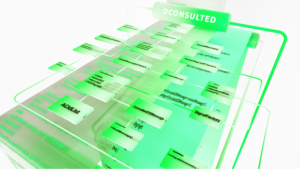
Generative AI tools like ChatGPT are revolutionizing software engineering by converting UML diagrams into accurate, structured code. Learn more about it here.
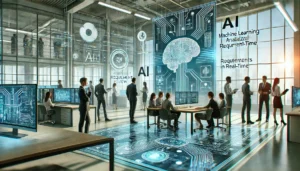
AI-powered requirement review tools simplify engineering verification, ensuring accuracy, efficiency, and compliance with INCOSE guidelines. Learn more about it here.

Managing and optimizing thread overhead is important for safety-critical and embedded systems. Learn more about the C++ multithread common myths here.

Managing and optimizing thread overhead is important for safety-critical and embedded systems. Learn more about the C++ multithread common myths here.

Discover the critical role of effective interface management in complex systems. Learn how centralized tools, AI-powered solutions, and well-defined processes can prevent errors, enhance collaboration, and ensure safety in industries like automotive and aerospace.

The system requirements analysis process under ASPICE and ISO26262 frameworks shapes automotive system architecture design for enhanced safety, reliability, and compliance. Learn more about it here.
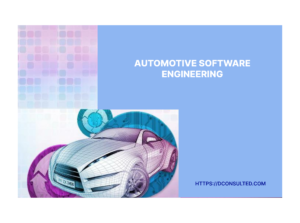
Compliance with ASPICE and ISO26262 standards provides a significant impact on automotive software development. Learn more about it here.

AI technologies like ChatGPT-4 are revolutionizing requirements engineering by improving accuracy, consistency, and efficiency. Learn about the role of AI in refining, validating, and managing project requirements here.
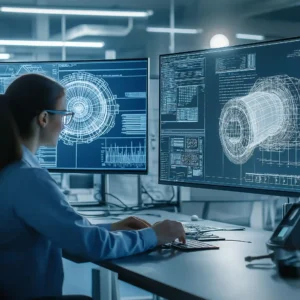
Model-Based Systems Engineering (MBSE) offers a robust framework to streamline the entire engineering process, from design to validation. Learn more about it here.
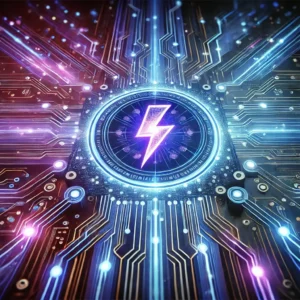
Data-Oriented Design (DOD) can revolutionize automotive software development by enhancing performance, reducing costs, and minimizing hardware requirements. Learn more about it here.

Explore the evolution of functional safety, its growing importance in industries like automotive, and the critical role of Fault Tolerant Time Interval (FTTI) in ensuring system reliability. Learn how FTTI, along with Malfunctioning Behavior Manifestation Time (MBMT) and Hazard Manifestation Time (HMT), contributes to robust safety designs, preventing hazards in safety-related systems such as ADAS and autonomous vehicles. Discover the impact of ISO 26262 standards on the development of effective fault detection and reaction mechanisms in automotive safety.
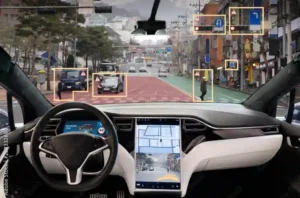
While ISO 26262 primarily addresses functional safety, SOTIF extends the scope to focus on potential hazards arising from system behaviour, even when the system functions as intended. Learn more about it here.

Discover the risks of reinterpret_cast in safety-critical software and explore safe alternatives like polymorphism and templates for robust, efficient code.

In a rapidly evolving technological landscape, the demand for systems that can not only withstand errors but also adapt to them is paramount. This article delves into the world of Fault-Tolerant (FT) systems, emphasizing their significance in maintaining the functionality and safety of critical operations across various sectors. It explores the latest advancements in FT technology, underscoring the importance of resilience and adaptability in ensuring uninterrupted service and safeguarding against potential failures.

In a rapidly evolving technological landscape, the demand for systems that can not only withstand errors but also adapt to them is paramount. This article delves into the world of Fault-Tolerant (FT) systems, emphasizing their significance in maintaining the functionality and safety of critical operations across various sectors. It explores the latest advancements in FT technology, underscoring the importance of resilience and adaptability in ensuring uninterrupted service and safeguarding against potential failures.
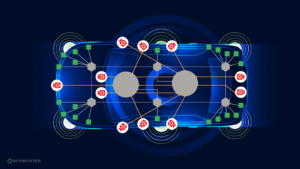
Discover the transformative impact of Software-Defined Networking (SDN) and Multicast Addressing on automotive embedded systems. Explore how these technologies enhance communication efficiency, safety, and performance in the automotive industry, leading to cost-effective, scalable, and eco-friendly solutions. Dive into the technical advantages and practical applications for modern vehicles and infrastructure.

Defect Escape Reduction Rate and feedback loop elevate testing. Learn more about them here.

ASPICE and ISO26262 frameworks improve system development in the automotive industry, ensuring safety, compliance, and high-quality standards.

Conducting software FMEA, FTA, and compliance with ISO 26262 helps developers create software that meets stringent safety requirements. Learn more about it here.
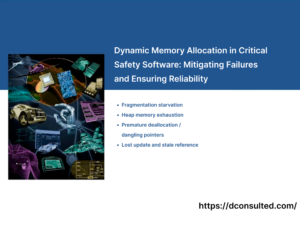
Explore the challenges of dynamic memory allocation in critical software, learn how to mitigate failures, and ensure the reliability of safety-critical systems. Real-life failures and practical solutions are discussed.
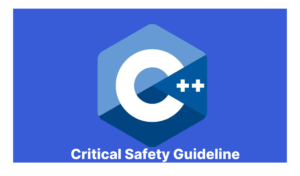
Strong types are a key concept in C++ programming for functional safety. Learn how strong types can reduce errors in critical systems with C++.
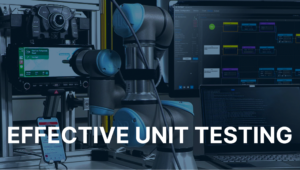
Unit testing is an essential part of the software development process. Learn more about it here.

Learn about categorizing requirements, including functional, non-functional, performance, interface etc for effective system management and development.
